Nicki Minaj and Sexism in Hip Hop

It’s no small secret that gender politics had little to no success in the world of Rap and Hip- Hop. For all of the chart toppers such as Kanye West and Macklemore who have a progressive outlook toward sexuality in hip-hop, there is a much maligned (in the general public) but ever more popular subculture in hip hop that is more reminiscent of the America of the 50’s than the present. The consensus of hip hop is that women are props.
No matter the artist this narrative is ever present. This can be seen in the lion share of top rap songs from Lil Wayne such as in the “Scream and Shout” Remix, “These hoes think they classy? Well that’s the class I’m skippin’\Got a party in my bedroom, that’s a party she ain’t missin\” or the smash hit “Loyal” by Chris Brown where the chorus goes, “When a rich n**** want you\ And your n**** can’t do nothing for ya\ These hoes ain’t loyal \These hoes ain’t loyal\ Yeah, yeah, let me see\” Women exist less as individuals and more as abstract groupings. When broken down into subcategories, there is nuance in the ways they are admired. A mother to a rap is a patron saint “And even as a crack fiend, mama \You always was a black queen, mama\” (“Dear Mama” by Tupac), while women as a whole aren’t worth the spit in their mouth. A daughter is a princess, but a young woman in a club is the target of any number of insulting and profane phrases. A lover is a goddess, but a woman who dares let herself engage in coitus with another woman is just a freak, acting out for male attention. With respect to the narrative, Nicki Minaj is perhaps one of the biggest targets as a woman in the genre.
As far as acceptable targets of scorn and ridicule go, few really surpass Nicki Minaj. Since her meteoric rise to the top of the charts, few artists have experienced such vocal hatedom. Many of the general offenses are present when asked what caused such vitriolic repulsion. “She can’t sing,” “She was better before she got signed,” “She was only signed because she’s bi*.” Nicki Minaj’s history is one similar to her male counterparts. She started on the underground and she worked until she got signed. Whether by luck or by talent, she was signed to Young Money around the same time as Drake and has served as the Wonder Woman to Lil Wayne’s Superman and Drake’s melancholic Batman (Not even sarcastic typing that). Still for all of her hard work as a female rapper, Nicki has faced more criticism than her male counterparts. For all the hatred of Drake’s dishonesty and faux-empathy (as seen in Take Care vs. No Lie), for all the cries of laziness on Lil Wayne’s part (Numerous videos dissecting his outright stealing of lyrics), Nicki carries not just her personal criticisms, but criticism by association. At this point in her career, Nicki releasing a song like “L.A.N” (abbreviated for brevity and censorship reasons) should’ve been seen as a testament to her bravery as an artist. Instead, it became just another point for Hip-Hop to show how rooted in the past it is.
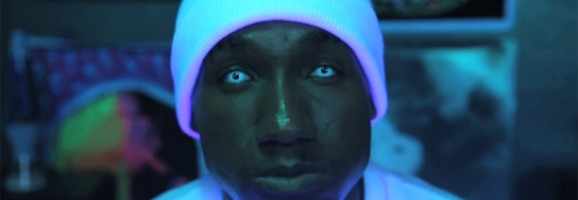
For example, compare Nicki to underground sensation Hopsin, who is often and proudly sexist in numerous songs. This is not alien to hip-hop, as noted in countless articles. For a genre that was founded as a response to the hedonism of the disco era, often repudiating the latter, the hallmarks and failings of disco are showing their features in current hip-hop whether on the mainstream or the “underground”. Hopsin’s lyrics are entrenched in misogyny which seems to draw a lot of his ancillary fans. From his sophomore album “Raw”, there are more songs with a callous hatred of women than any other topic outside of hyper violence and being underrated. For example in his song, “I’m Not Introducing You,” Hopsin pens, “Man it’s so hard to find a girl who’s close to having a mind state like me\ A lot of you drink and smoke, suck a lot of d*** on the low and probably got HIV\ Don’t get mad when you get played by me I’mma keep it real til the day I D-I-E\ And for you girls who be up in the club that’s underage with a fake ID\ Listen, I don’t give a f*** what you believe most guys don’t want you to see\” This isn’t met with any widespread criticism, no bloggers ranting for days on end about Hopsin’s sexist remarks. Yet when Nicki addresses failures in males, she is met with response tracks, such as Cassidy’s “Looking A** B*****s” in which he concludes that she was correct, but he felt the need to put women in check for letting her song “gas them up”. This belies the culture of hip-hop. A stagnant cesspool of machismo where questioning any failure of a man is cause for alarm.
In hip hop, women are only allowed to play two roles which they hardly ever play simultaneously. Either you’re gritty and rough and vicious as any man, or you’re sultry, and seductive, and a man needs to be everything to get a chance for anything with you. Nicki Minaj plays more towards the latter, but isn’t satisfied as a one trick pony. While the songs of her being lewd and lustful are some of her biggest hits, it is when she foregoes the silly voices and, to use a colloquialism, “snaps” on a song that many are forced to take notice.
Now, is this saying that we should respect Nicki more than Hopsin because she’ll occasionally release a genuine piece after a seemingly unending tide of mediocrity? Not at all. I am, however, calling for an assessment of the tendency in hip hop, whether pop or not, to disregard female voices or relegate them to choruses or guest verses to make the males of a song look better. Few duets in hip-hop actually accomplish what they set forth to do. They either come across as schmaltzy and saccharine as in the case of many of Ja-Rule’s efforts, or they are dealt with in such coarse ways that the subject matter is lost in the lyrics, which become revolting because of their divorcement from reality, such as the duets that feature hyper-sexualized women ready and willing for all of the sexual energies of their partner.
We’re out of the age of Lauryn Hill and Lil Kim. Missy Elliot and Rah Digga are relics of the past. Nicki Minaj is far and away the most popular female rapper in a decade and yet, for all of her hype and all of her success, when she speaks out as a black woman, hip hop spits venom back at her. Can many rappers be blamed for their response? After all Nicki Minaj is more a pop icon than rap queen, more bubblegum than grit, more chorus than actual lyrics. More Hogan than Hart. Still when viewing her impact, it will always be mired by the fact that even if she was “just a bubblegum artist” it wouldn’t rob the truth from her words. When she proclaims what she would and wouldn’t do as a strong woman, the changes she’s adopted are noticeably absent. She doesn’t contradict herself in her song and her argument is very cogent in nature. The fact that her song drew such ire reminded me of the only other time I remember women speaking out in a negative manner about men.
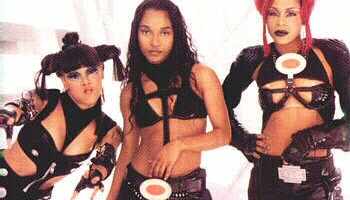
Back in the late 90’s, TLC was one of the most popular groups, not just as women, but overall. Their success was measurable in comparison to many legends of hip hop. Within their catalog are numerous love songs, heartfelt ballads speaking of dedication and, in some cases, lustful anthems reveling in the pure carnal instincts of humans in others. For all of their music history, it was one of their biggest hits, “No Scrubs” which opens with the lines, “A scrub is a guy that thinks he’s fly\ He’s also known as a buster\ Always talkin’ about what he wants\ And just sits on his broke ass\” that caused the biggest outcry. When they released “No Scrubs,” the chorus of boos could be heard in the vacuum of space. The backlash even fostered a top 20 hit in the response song, “No Pidgeons” by Sporty Theivz. Containing lyrics such as, “A Pigeon is a girl who be walkin’ by\ My rimmed up blue, brand new sparklin’ five\ Her feet hurt so you know she want a ride\ But she frontin’ like she can’t say hi\” They go on to rap, “Yo, chill cousin, these birds is ill cousin\ Cause they call me scrub like we can’t even bill cousin\ Trick Ronald’s, you ain’t worth the McDonalds\ Throw you on the street team, make you sh*t vinyl\” It came across less as a work of love and more of work of spite. When women speak out in hip-hop, if it diverts from a set kind of song, a predetermined subject matter, many in the world of hip-hop feel the need to reprimand them. “How dare a woman think herself equal to a man,” is the mentality that comes across.
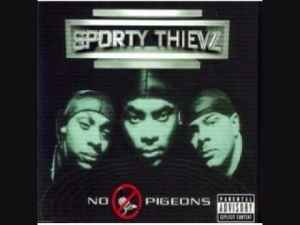
The legacy of “No Scrubs” far extends the legacy of “No Pidgeons” but the themes of the songs have an inverse relationship. For all of the popularity and respect paid to TLC as a group, their message of female empowerment was lost. The won the battle against Sport Thievz quite handly, but lost in respect to the culture of Hip-Hop. The narrative of “No Pidgeons” remained ever present on the radios and to this day their points i.e. women aren’t worthy enough to criticize men are the ones the youth will hear. The points and qualms raised in “No Scrubs” became antiquated as immediately as they were addressed.
Within the culture of hip hop, we have created systematic sexism. It’s not good enough that women serve as props or garnish, they must be held in their place. If any woman dares speak down about a man without a man present, then she is to be burned at the stake. The status quo must never be challenged and if some woman dares think herself worthy of the honor of besmirching males, she must learn that she’s worthless. No matter the acclaim or notoriety, a woman in hip-hop must accept being subservient to males or forever be ridiculed and defamed for her speaking out. Does this make Nicki Minaj a martyr? No, but I do believe her points must be addressed in a way other than “BUT WOMEN AREN’T PERFECT EITHER!” before hip-hop can truly progress.
What do you think? Leave a comment.

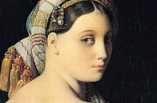
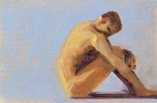
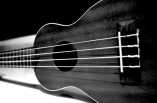

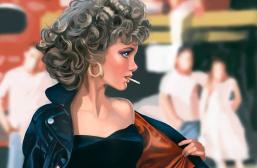
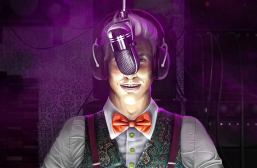
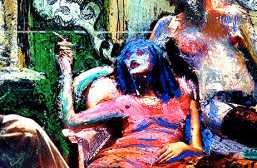
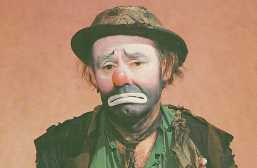

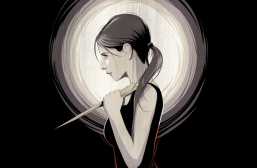
I liked how you took a different angle on sexism in rap by looking at Niki Minaj as a female rapper in a male dominated society. I appreciated this spin after hearing and reading so much on this topic. I think your analysis was well thought out and well put.
Thank you very much, I was nervous writing this because I didn’t really apply any feminist theory I just analyzed the situations I’ve seen in one of my favorite genre’s and wrote from there.
I really appreciate your analysis. I do have a few questions. While I agree that there seems to be a double standard in how women are treated within hip-hop, I wonder if this is solely relegated to hip-hop genre. In rock, country, and other such genres I think we can find equally sexist tropes that place women, either in the form of artist or subject, into somewhat binary roles. Also, I wonder how we can factor race into the argument? Does a neoliberal, white male dominated record industry institutionalize a racism and sexism by only signing artists which will espouse such sexist lyrics? I may be oversimplifying or overgeneralizing but I think they are important questions which your article has caused me to ponder.
From my musical background I can only say I’ve seen that there tends to be a nuance in every genre aside from hip-hop. Women are allowed to embrace their femininity in ways other than its sexual value in other genres. While there are exceptions to the rule they’ve long since stopped being relevant in the genre as opposed to Pop, Rock, Country. Taylor Swift, Adele, Katy Perry, Lady Gaga. Hip-Hop doesn’t have answers to the other genres’ female superstars.
As far as race if you look in hip-hop, institutionalized racism is just the tip of the iceberg. It’s systematic oppression ingrained at the roots of the culture.
I’m glad you are thinking about the facets that affect the genre.
It is refreshing to see a man’s perspective of the sexist nature if entertainment. I believe it occurs for the reasons you’ve stated and also as a tool to over sexuality the youth. After all, that’s who ‘pop’-ular music is geared towards. For the people who want to keep up with the Jones’ and the youth that want to be in the “in crowd”, the sexist over sexualities nature of music will always be a successful tactic. When the general public stops buying into it, sexism will not be used as propaganda as much as it is now. And yes, nothing has really “changed” since the 1950’s except technology, LoL.
I hate autocorrect! I meant *of entertainment, *tool to oversexualize, and *sexist oversxualized nature. Forgive me:)
Ah auto-correct makes fools of us all.
Really really great article. Thought you may be interested in this given your interest in Nicki Manaj and your reading of hip-hop/culture. My cousin wrote it a while back! http://www.racialicious.com/2012/02/23/nicki-minaj-the-flyest-feminist/
This is very true. Women are never going to be equal to a man, in the eyes of any man. And this needs to change.
I wouldn’t go as far as to claim that women aren’t seen as equals by any males. There’s just a large portion of men stuck in the past.
Please don’t please yourself to the images of nikki.
Good read, I’m left wondering if the non-progessive attitudes prevalent in most popular hip-hop on the radio is an outgrowth of African-American culture’s dependence on origin and the past in formation of its present identity
That could definitely be a root of the problem though I’m hesitant to assign too much responsibility to it.
You mention briefly how machismo factors into the prevalence of sexism in hip-hop, and there is where I think you hit the nail on the head. It seems to me that the sexism won’t fade until the pride does unless the metric of “how awesome I am” comes to be measured by how much women actually like you and feel respected by you rather than “how many hos you got.” I don’t know hip-hop history that well, but none of the early hip-hop sings I’ve heard–when the themes were more about just havin’ fun doing this or that, dancing, or living life–held much in the way of sexist or homophobic content.
Now, though, if a rap isn’t about fighting someone or banging some chick, it’s about how much more money a rapper has than everyone else. Sexism and homophobia run rampant in these songs. I can’t help but think the two are quite intimately connected and will be until we get back to some humbler, more liberal-minded raps.
She is disgusting. Cannot wait until I never have to hear her music on the radio again.
I love that you explore the history of sexism in hip hop and that it is not all about Nicki Minaj. That being said did you happen to watch her mini-rant on youtube about how, as a woman, she is treated less well compared to male artists? It’s really interesting. Great article =]
Interesting discussion…though I do wonder, as one wonders about Beyonce and feminism…how much of the misogyny train Nicki Minaj is fueling for hip hop as well? Not an attempt to point fingers, or take away blame from male artists, but just like we have to blame Ann Wintour for massively distributing harmful materials on beauty, what role is Minaj playing in the hip hop game? (This is just a question…I do know we are all walking contradictions.)
Excellent read, I especially like the ways in which you illustrated the dualisms surrounding depictions of women in hip hop.
In the face of such aggressive sexism both within the hip hop industry and without – via pop listeners, etc. – I am curious what your take is on Minaj’s presentation of her femininity? Does her image as “Barbie” mark a refusal to participate in the “one of the boys” trope into which other female rappers have played? Or is it more likely a sign of her internalized sexism?
I agree that sexism is still super prevalent in all forms of music, but let’s appreciate the steps forward that female musicians have made! Just see Iggy Azalea, topping the Billboard charts now!
Personally, not the hugest fan of Minag, her music seems to be an acquired taste. I think that music has always been more male-dominated, but at this point it’s starting to turn, at least a little.
I think this article makes a really great point, and I hope that it will bring about change. It’s very well-written!
I couldn’t agree anymore with this article, but I believe that sexism not only takes place in the Hip Hop industry, but in the music industry all together. For instance, within the pop industry you have artist such Katy Perry who seems to be more on the edgy side and very opinionated when it comes to voicing her opinion through music or interviews about empowering one self or just being free. However, it seems as if every time she opens her mouth it is expected for her to be attacked. She is often criticized on her edgy lyrics, style and simply for being too vocal on speaking up for women. I salute all women in the music industry who choose to challenge societies opinion on how women should be viewed, speak or simply carry themselves, continue to be great and inspire other women too be great.
Even 8 years later, this is still the case in the Hip-Hop/music industry. Nicki Minaj is still relevant in this topic of discussion too, so I really believe she’s doing her work to further prove that women can do what men can do. Amazing article by the way!